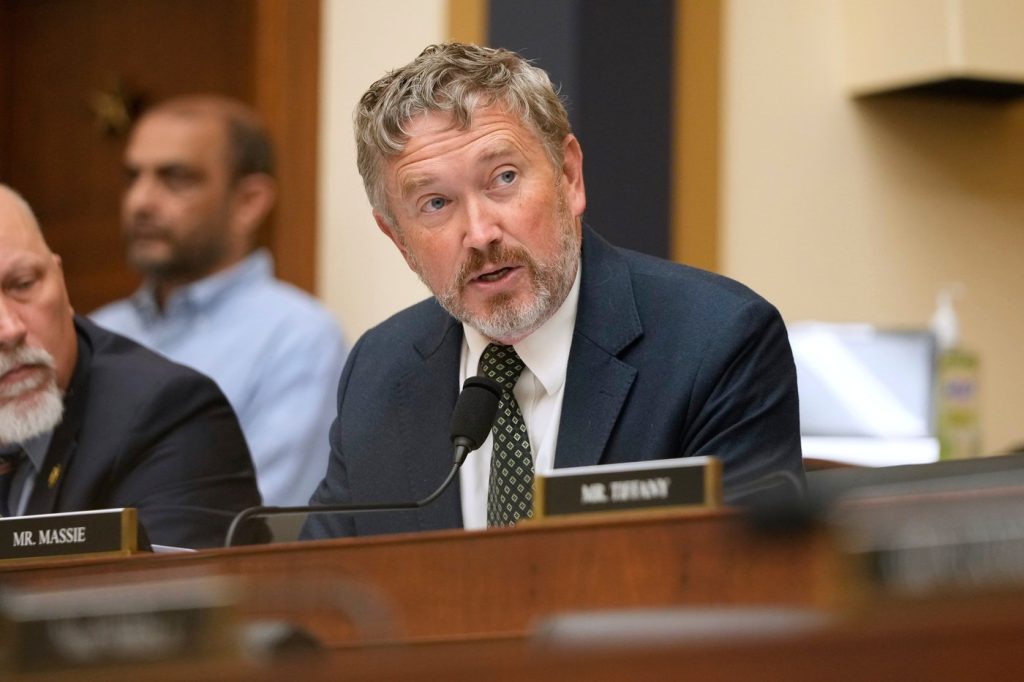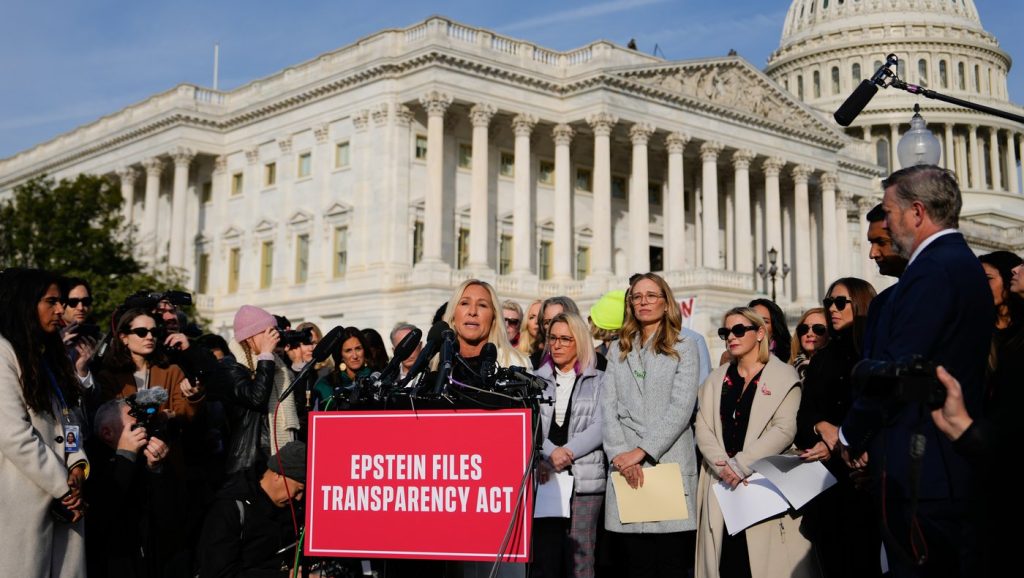The House of Representatives is set to vote on Tuesday regarding a bill designed to compel the Justice Department to release the case files it has gathered concerning the late financier Jeffrey Epstein. This legislative action comes despite a prolonged effort by former President Donald Trump and other Republican leaders to suppress such initiatives.
The push for greater transparency in the long-standing sex trafficking investigation into Epstein has gained traction since lawmakers returned to Washington following a nearly two-month government shutdown. On returning, they were met with new revelations from newly released emails linked to Epstein, which included allegations claiming that Trump had "spent hours" at Epstein's residence with a sex trafficking victim and was aware of the involvement of underage girls.
These new details and the upcoming vote illustrate one of the rare instances in which Trump has not maintained his usual tight grip over the Republican party. Responding to the growing momentum behind the bill, Trump indicated on Monday that he would sign it should it successfully pass both chambers of Congress.
The investigation into Epstein has gained political significance since his death by suicide in a Manhattan jail in 2019 while facing serious charges of sexually abusing and trafficking minors. In the wake of Epstein's passing, numerous other individuals have come forward with claims of abuse at the hands of the prominent financier.
Many legislators argue that it is crucial for the Justice Department to disclose its files on Epstein, as these documents could reveal whether others were complicit in his abuses. The House Democrats, along with several key Republicans, utilized a rarely successful mechanism known as a discharge petition to force a vote on this legislation.
As it became more obvious that the bill would gain support in the House, including backing from numerous Republican lawmakers, both Trump and House Speaker Mike Johnson shifted their stances from outright opposition to a more indifferent attitude. Trump stated, "Here’s what I want: We have nothing to do with Epstein. The Democrats do,” suggesting that the controversy surrounding Epstein was serving as a distraction from his administration's achievements.
The bill, formally known as the Epstein Files Transparency Act, was introduced in July by Reps. Ro Khanna (D-Calif.) and Thomas Massie (R-Ky.). It has gained favorable reception from all House Democrats and four Republican lawmakers: Massie, Lauren Boebert (R-Colo.), Marjorie Taylor Greene (R-Ga.), and Nancy Mace (R-S.C.). Following the swearing-in of Rep. Adelita Grijalva of Arizona, she signed the petition, bringing the total number of supporters to 218, a majority in the 435-member House.
Speaker Johnson has maintained that he did not obstruct the Epstein legislation to shield Trump or other individuals, instead arguing that the bill's language failed to adequately protect victims. He has also highlighted a concurrent inquiry by the House Oversight and Government Reform Committee into Epstein’s abuse, which has focused on his associations with Democrats like former President Bill Clinton.
The committee released Epstein’s emails, which were part of 20,000 pages of documents obtained from his estate, and has also subpoenaed the Justice Department for its case files, although Democrats argue the response has been lacking.
The bill mandates the Justice Department to release all files and communications related to Epstein, including details surrounding the investigation into his death. While certain sensitive information may be redacted, the department will not be permitted to withhold content due to embarrassment, reputational harm, or political sensitivity involving government officials or public figures.
Strong support for the bill is anticipated within the House, but its chances in the Senate, where Republicans hold a 53-47 majority, remain uncertain. Senate Majority Leader John Thune (R-S.D.) expressed his inability to comment on whether the Senate will consider the bill while acknowledging that the Justice Department has already made considerable disclosures regarding the matter.
Trump has stated his willingness to endorse the bill if it passes both legislative chambers, even as he previously tried to convince Republican members to halt the House discharge petition. His assertions reiterated that Epstein had stronger ties to Democrats, aiming to redirect focus away from the contents of the files to mitigate impact on the Republican Party's achievements.
Massie has encouraged Trump to consider proactively releasing all federal Epstein-related documents himself, suggesting an opportunity for the president to emerge as a champion of transparency in this ongoing contentious issue.












